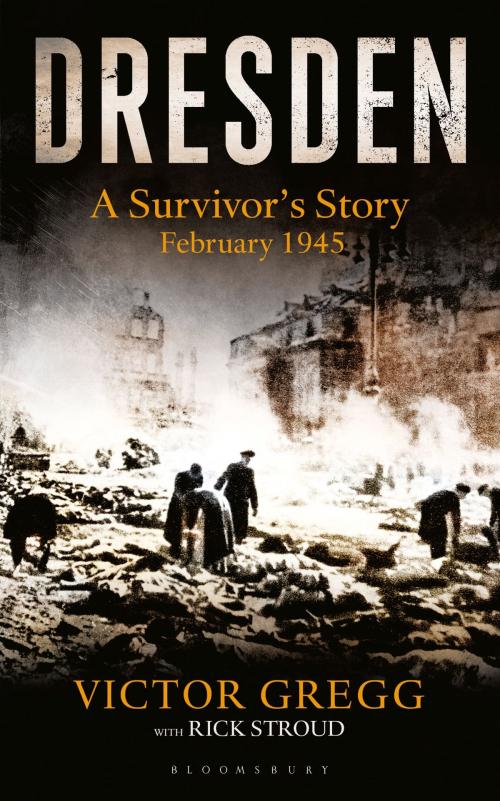| Author: | Victor Gregg | ISBN: | 9781448211456 |
| Publisher: | Bloomsbury Publishing | Publication: | February 13, 2013 |
| Imprint: | Bloomsbury Reader | Language: | English |
| Author: | Victor Gregg |
| ISBN: | 9781448211456 |
| Publisher: | Bloomsbury Publishing |
| Publication: | February 13, 2013 |
| Imprint: | Bloomsbury Reader |
| Language: | English |
'Victor Gregg is the most remarkable spokesman for the war generation' Dan Snow
In Slaughterhouse-Five, Kurt Vonnegut fictionalised his time as a prisoner of war in Dresden in 1945. Vonnegut was imprisoned in a cellar while the firestorm raged through the city, wiping out generations of innocent lives. Victor Gregg remained above ground throughout the firebombing. This is his true eyewitness account of that week in February 1945.
Already a seasoned soldier with the Rifle Brigade, Gregg joined the 10th Parachute Regiment in 1944. He was captured at Arnhem where he volunteered to be sent to a work camp rather than become another faceless number in the huge POW camps. With two failed escape attempts under his belt, Gregg was eventually caught sabotaging a factory and sent to Dresden for execution.
Before Gregg could be executed, the British Royal Air Force and the United States Army Air Forces dropped more than 3,900 tons of high-explosive bombs and incendiary devices on Dresden in four air raids over two days in February 1945. The resulting firestorm destroyed six square miles of the city centre. 25,000 people, mostly civilians, were estimated to have been killed. Post-war discussion of whether or not the attacks were justified has led to the bombing becoming one of the moral questions of the Second World War.
In Gregg's first-hand narrative, personal and punchy, he describes the trauma and carnage of the Dresden bombing. After the raid, he spent five days helping to recover a city of innocent civilians, thousands of whom had died in the fire storm, trapped underground in human ovens. As order was restored, his life was once more in danger and he escaped to the east, spending the last weeks of the war with the Russians.
'Victor Gregg is the most remarkable spokesman for the war generation' Dan Snow
In Slaughterhouse-Five, Kurt Vonnegut fictionalised his time as a prisoner of war in Dresden in 1945. Vonnegut was imprisoned in a cellar while the firestorm raged through the city, wiping out generations of innocent lives. Victor Gregg remained above ground throughout the firebombing. This is his true eyewitness account of that week in February 1945.
Already a seasoned soldier with the Rifle Brigade, Gregg joined the 10th Parachute Regiment in 1944. He was captured at Arnhem where he volunteered to be sent to a work camp rather than become another faceless number in the huge POW camps. With two failed escape attempts under his belt, Gregg was eventually caught sabotaging a factory and sent to Dresden for execution.
Before Gregg could be executed, the British Royal Air Force and the United States Army Air Forces dropped more than 3,900 tons of high-explosive bombs and incendiary devices on Dresden in four air raids over two days in February 1945. The resulting firestorm destroyed six square miles of the city centre. 25,000 people, mostly civilians, were estimated to have been killed. Post-war discussion of whether or not the attacks were justified has led to the bombing becoming one of the moral questions of the Second World War.
In Gregg's first-hand narrative, personal and punchy, he describes the trauma and carnage of the Dresden bombing. After the raid, he spent five days helping to recover a city of innocent civilians, thousands of whom had died in the fire storm, trapped underground in human ovens. As order was restored, his life was once more in danger and he escaped to the east, spending the last weeks of the war with the Russians.















